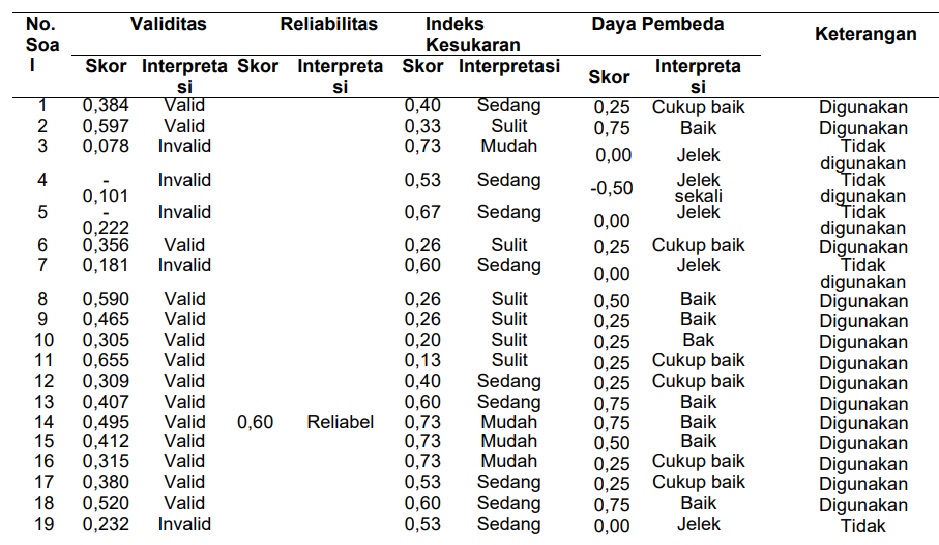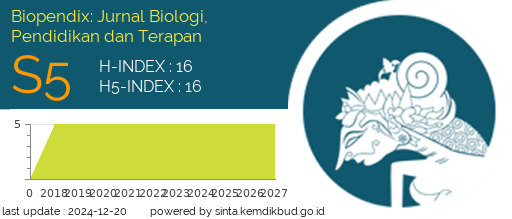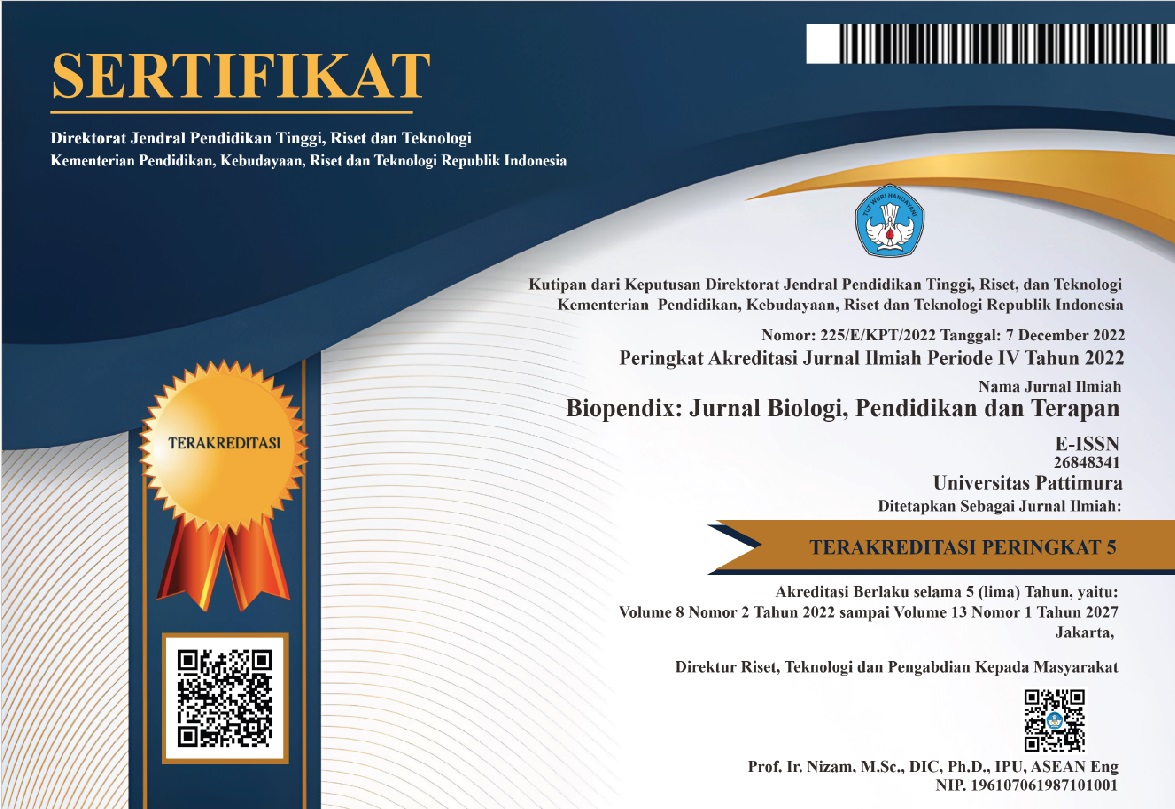ANALISIS BUTIR SOAL KETRAMPILAN BERFIKIR TINGKAT TINGGI SISWA XI PADA MATERI SISTEM GERAK MANUSIA
Abstract
Background: One of the skills that students should be have is higher-order thinking skills, especially critical thinking skills acquired during learning which are measured to find out student learning outcomes in the form of tests. Before the test, an analysis of the quality of the test or item analysis is carried out to produce a quality test and meet the test requirements, namely validity, reliability, objectivity, index of difficulty, and discriminatory power.
Methods: This research uses a quantitative descriptive approach
Results: The research showed that the results of the instrument for testing higher-order thinking skills, especially critical thinking skills in the subject of human movement systems for class XI students at MA Darul Ulum, were declared valid and reliable, then used to measure higher-order thinking skills. The average score of students' higher-order thinking skills for the descriptive item test instrument was 72. The highest score for the descriptive item test instrument achieved by students was 96 and the lowest score was 32. This shows that students' higher-order thinking skills were still lacking. The researcher re-developed the high-order thinking skills test instrument by adjusting the performance indicators to the questions.
Conclusion: The test instrument for higher order thinking skills, especially critical thinking skills in the human movement system material for class XI students at MA Darul Ulum which was developed is valid, reliable, and feasible to use.
Downloads

Authors who publish with this Journal agree to the following terms:
- Author retain copyright and grant the journal right of first publication with the work simultaneously licensed under a creative commons attribution license that allow others to share the work within an acknowledgement of the work’s authorship and initial publication of this journal.
- Authors are able to enter into separate, additional contractual arrangement for the non-exclusive distribution of the journal’s published version of the work (e.g. acknowledgement of its initial publication in this journal).
- Authors are permitted and encouraged to post their work online (e.g. in institutional repositories or on their websites) prior to and during the submission process, as it can lead to productive exchanges, as well as earlier and greater citation of published works




 2
2






